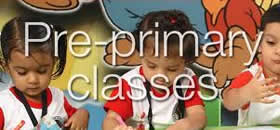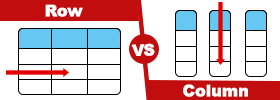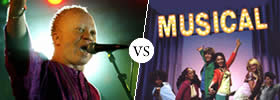Difference between Preschool and Pre-primary
Key Difference: A preschool refers to a preparatory school that has been designed for children under the statutory school age. It generally covers children between two to five years of age. Pre-primary is a term that is generally used in context to the time before the primary education of the children. A preschool generally refers to a nursery school. Pre-primary education is associated with studies in nursery as well as kindergarten classes.
.jpg) Early childhood education plays a vital role in a child’s life. This stage helps in simulation of intelligence and also provides an opportunity to the children to get prepared for a formal school. A preschool is a generic term that covers all kinds of institutions that provide an elementary education to the children. Generally, it refers to nursery schools. In these schools, play based techniques are employed to create a learning environment for the children. These schools specialize in dealing with children under the statutory school age, which generally covers children between two to five years of age. A child is expected to learn various skills involving the alphabets, numbers and spatial awareness in a preschool.
Early childhood education plays a vital role in a child’s life. This stage helps in simulation of intelligence and also provides an opportunity to the children to get prepared for a formal school. A preschool is a generic term that covers all kinds of institutions that provide an elementary education to the children. Generally, it refers to nursery schools. In these schools, play based techniques are employed to create a learning environment for the children. These schools specialize in dealing with children under the statutory school age, which generally covers children between two to five years of age. A child is expected to learn various skills involving the alphabets, numbers and spatial awareness in a preschool.
 Pre-primary is a term that is generally associated with the education or instructions for the children under the statutory school age. A pre-primary education programme enhances the skills of a child before his/her stepping into the primary school. It generally includes nursery classes and kindergartens. Pre-primary education is followed by primary education. Primary education is the first phase of compulsory education. Pre-primary education is useful for children in many ways; it also helps them get familiar with the school type environment. Preschool and pre-primary education are generally used interchangeably to define initial phase of organized and structured education.
Pre-primary is a term that is generally associated with the education or instructions for the children under the statutory school age. A pre-primary education programme enhances the skills of a child before his/her stepping into the primary school. It generally includes nursery classes and kindergartens. Pre-primary education is followed by primary education. Primary education is the first phase of compulsory education. Pre-primary education is useful for children in many ways; it also helps them get familiar with the school type environment. Preschool and pre-primary education are generally used interchangeably to define initial phase of organized and structured education.
Comparison between Preschool and Pre-primary:
|
|
Preschool |
Pre-primary |
|
Definition |
Preschool refers to a preparatory school that has been designed for children under the statutory school age. |
Pre-primary is a term that is used in context to the time before a primary education of children. A pre-primary school is the same as a preschool. |
|
Origin |
From Latin prae-, prefixal meaning first, fore, prior, pro + Old English scol, from Latin schola "intermission of work, leisure for learning; learned conversation, debate; lecture; meeting place for teachers and students, place of instruction; disciples of a teacher, body of followers, sect" |
From Latin prae-, prefixal meaning first, fore, prior, pro + Latin primarius "of the first rank, chief, principal, excellent" |
|
Types |
Some of the types are -
|
There are basically two types of pre-primary schools –
|
|
Advantages |
|
Some of the advantages of pre-primary education include –
|
| Includes | Generally, include nursery classes. | Generally, include nursery and kindergarten classes. |
Image Courtesy: kohinoorschool.ac.in, craven.k12.nc.us









Add new comment